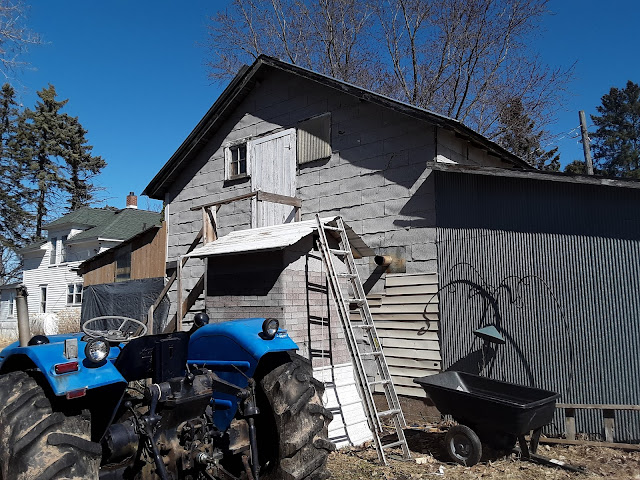Ash Borers Advance Up the St. Croix River Valley
Emerald ash borers have now made their way as far north as Nevers Dam Landing on the Wisconsin side of the St. Croix. That puts them only four miles south of our farm. With so many ash trees in our woods, it’s likely we’ll see the first signs of infestation in 2026 or 2027—and then the familiar decline that follows.
Unlike the elm, which now survives mostly as a brush tree living only a decade or two at best, ash does not seem to regenerate well after borer attack. We may be watching the quiet disappearance of a major species from our forests.
A Slow Drive with a Purpose
Yesterday, with the leaves finally off the trees along the River Road, I took my new-to-me 10-year-old Nissan Leaf north from St. Croix Falls to survey just how far the ash borer has crept. At 45 mph the Leaf gets nearly 25% more range than at 60 mph, which matters when the battery—brand-new—was only ever designed for about 86 miles. With my used one getting closer to 70 miles, the River Road is a perfect match for both scenery and practicality.
Driving slowly also lets me scan the ash trees for the telltale signs of infestation.
Watching the Spread for 15 Years
I’m very familiar with the early symptoms. Margo’s family near West Bend—Newburg—saw the very first emerald ash borer detected in Wisconsin back in 2008. For years afterward, as we drove down Hwy 33 to visit relatives, we watched the borer’s march across the state. First to Portage, then steadily westward, then racing up Interstate 94.
Polk County saw its first confirmed cases just a few years ago, around Dresser if memory serves. Burnett County followed a couple years later.
My Other Woods Already Hit
My Pine Island (MN) property, 20 miles northwest of Rochester, has many ash trees too. Two years ago the pale patches appeared, and by last summer almost all the ash were dead or dying—roughly a two-year decline from first infestation to collapse. The roots keep trying to send up shoots afterward, but whether those will ever survive is doubtful.
Two years ago I noticed the same pale patches on the ash at the Polk County Fairgrounds in St. Croix Falls. Those trees were removed last summer.
The Woods Here at Home
Our own 100 acres—about 50 in forest—is a classic hardwood mix: maple, cherry, basswood, ironwood, a few young elms that will sadly die, and many ash along Orr Lake and Orr Creek. With a bandsaw mill handy, I’m hoping to salvage some of the ash as lumber and use the rest for firewood in the maple sap cooker.
I should really be sawing the Minnesota ash now while it’s still good, but moving infested logs into an uninfested area is a bad idea—and possibly illegal. I posted photos on Facebook yesterday and heard from a neighbor two miles north of Cushing who said their ash is already dying.
The Front Line at Nevers Dam
The nearest visibly infested ash to our farm are at Nevers Dam Landing. Several are showing the distinctive pale, flaky bark—usually the first sign you can see from the road. That puts the borer about four miles away “as the ash borer flies.”
Based on what I’ve seen elsewhere, I expect the first signs on our property this coming summer, with dead trees the year after.
How Long Before Ash Becomes Unusable?
I searched around for how long a dead ash remains good for lumber. ChatGPT summed it up well:
Ash stays good for lumber for 1–2 years after death, maybe up to 3 years with luck, but not much more.
Years ago I cut an ash tree at the MN property, air-dried it, and used it for flooring. A beautiful wood—strong, with a little tendency to twist if not clamped well. It’s long been used for tool handles, so I hope we can salvage as much as we did with the red elm die-off back in the 1970s.
Photos from the Survey
I took several photos of ash trees along the River Road from St. Croix Falls up to Nevers Dam. The infested ones stand out clearly with their bright tan patches against the dark bark. North of Nevers Dam the sand barrens begin, where ash grows only sparsely.
Interestingly, the ash along Wolf Creek on the River Road were not yet showing signs of infestation.

































.JPG)


























